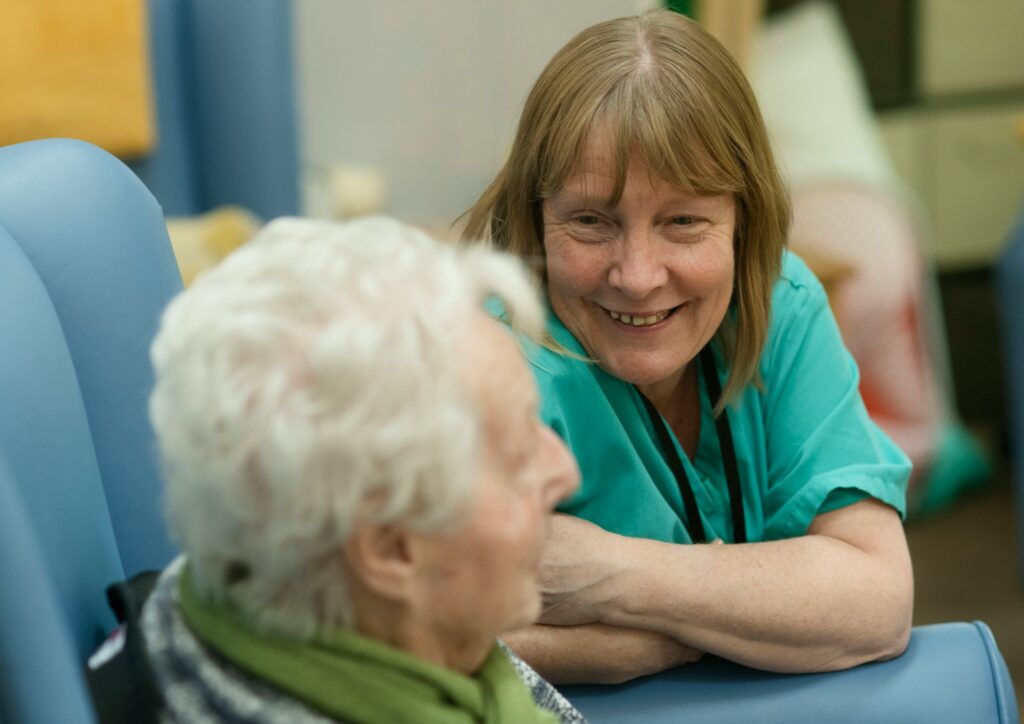Charities are urging the government to produce a plan to protect people’s mental health after a helpline reported a 400% increase in calls.
Dave Smithson, operations director at Anxiety UK, told socialcare.today that calls to the charity’s helpline increased by 403% during the first months of the pandemic.
He said callers’ concerns ranged from fears of passing the virus on to loved ones to employment worries, with the majority coming from people who had never struggled with anxiety before.
‘The whole situation has caused an awful lot of anxiety.
‘People were concerned about their health and about passing the virus on to their loved ones. They would ring up thinking they had coronavirus symptoms but they were actually the physical symptoms of anxiety.
‘For people who have never experienced anxiety before it was very worrying. They couldn’t understand why a mental health condition was causing physical symptoms.
‘There’s potential for people to become overly-anxious about their health.
‘When you look at some of the causes of anxiety it can be genetic or it can be something that is learned.
‘So if people are constantly checking for symptoms it could easily become habit.’
Mental health under pressure
This comes after a study by the Mental Health Foundation revealed that feelings of worry are now rife among adults in the UK.
More than half (54%) of adults surveyed said they are feeling anxious, with nearly half (46%) reporting that they are worried about the mental health of their children and how it is being impacted by the pandemic.
The study also revealed that teenagers’ mental health is under pressure, with more than a quarter (27%) reporting that they feel nervous, anxious or on edge on most or nearly all the days.
Hayley Martin has lived with anxiety and OCD since she was a child. She said her health anxiety heightened after suffering a heart attack when she was 39.
The 50-year-old warns that the pandemic has created a ‘perfect storm’ for people to develop anxiety and is worried a generation of children will become obsessed with their own health and that of their loved ones as a result.
‘Health anxiety is the worst thing I’ve ever experienced. I can’t articulate how debilitating it is, it robs you of any hope for the future. I feel really sorry for anyone who has it.
‘I was getting back in control of my anxiety and then the pandemic kicked off and now I’m the worst I have ever been in my entire life.
‘It has cut all the good things out of my life and left me with all this time to obsess about the health of my loved ones and myself.
‘The people actually contacting Anxiety UK are just the tip of the iceberg. Sometimes the worst affected and the most damaged are the ones not asking for help.
‘I think there are a lot of hidden people who are too scared or ashamed to reach out and they’re suffering a lot more.
‘There is going to be a generation of kids growing up obsessed with health and illness because they have such fertile, bright young minds. It’s the perfect storm to mess them up. It’s the worst thing that could have happened to them.
‘I am a professional worrier, I am really good at it I’ve been doing it for 45 years. I can’t stand the thought that these precious kids will be growing up with a life like mine.’
A holistic approach
Minister for mental health, Nadine Dorries, said the government is training a new dedicated mental health workforce for schools and colleges across the country as well as teaching them what good mental and physical health looks like.
‘I am acutely aware of how difficult this pandemic has been and I remain absolutely committed to supporting everyone’s wellbeing and mental health.
‘It is understandable people may feel anxious or low at the moment, Every Mind Matters offers a range of great, free resources including personalised mind plans.
‘For those who continue to feel unwell or have pre-existing conditions, mental health services remain open and I urge anyone who is struggling to come forward for help, these services are here to support you.
‘We are committed to supporting good mental health and wellbeing. As part of the long term plan we have committed an additional £2.3bn a year to mental health services, and as part of the Spending Review 2020, we have announced the NHS will receive an additional £500m to address waiting times for mental health services, give more people the support they need, and invest in the NHS workforce.’
However, the Mental Health Foundation said action will need to be taken by all government departments to recover people’s mental health prevent more severe mental health problems from taking hold as a consequence of the crisis.
‘The government has stated that it is developing a plan to support mental health in the recovery from the pandemic, which we welcome.
‘It is important that this is comprehensive and covers all the groups who are at greatest risk of harm, including infants and their families, recognising both their increased isolation and rises in domestic violence and child protection concerns, people who are financially insecure, people from BAME communities, refugees and asylum seekers, and people with pre-existing mental health problems, as identified through our research.
‘The plan needs to work across the whole of government and holistically address the impacts on mental health by involving departments other than health, for example communities and local government, education, justice, transport and welfare.
‘Actions taken across government departments can help people to protect and recover their wellbeing during and after the pandemic and can prevent more severe mental health problems from taking hold as a consequence of the crisis.’
Photo Credit – Pixabay

















Leave a Reply